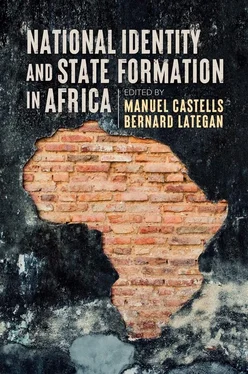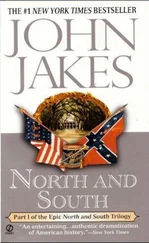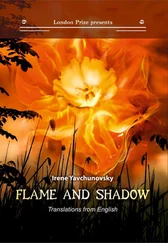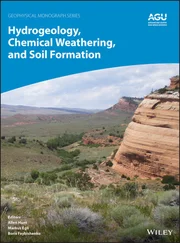1 Cover
2 Title Page National Identity and State Formation in Africa Edited by Manuel Castells and Bernard Lategan polity
3 Copyright Copyright © Manuel Castells and Bernard Lategan 2021 The right of Manuel Castells and Bernard Lategan to be identified as Editors of this Work has been asserted in accordance with the UK Copyright, Designs and Patents Act 1988. First published in 2021 by Polity Press Polity Press 65 Bridge Street Cambridge CB2 1UR, UK Polity Press 101 Station Landing Suite 300 Medford, MA 02155, USA All rights reserved. Except for the quotation of short passages for the purpose of criticism and review, no part of this publication may be reproduced, stored in a retrieval system or transmitted, in any form or by any means, electronic, mechanical, photocopying, recording or otherwise, without the prior permission of the publisher. ISBN-13: 978-1-5095-4562-9 A catalogue record for this book is available from the British Library. The publisher has used its best endeavours to ensure that the URLs for external websites referred to in this book are correct and active at the time of going to press. However, the publisher has no responsibility for the websites and can make no guarantee that a site will remain live or that the content is or will remain appropriate. Every effort has been made to trace all copyright holders, but if any have been overlooked the publisher will be pleased to include any necessary credits in any subsequent reprint or edition. For further information on Polity, visit our website: politybooks.com
4 Preface Preface This book is the outcome of a three-year research project (2017–2019), initiated by the Stellenbosch Institute for Advanced Study (STIAS) under the leadership of Manuel Castells (a Permanent Visiting Fellow of STIAS) and Bernard Lategan (the Founding Director of STIAS). STIAS promotes high-level, innovative and interdisciplinary research (for more details, see https://www.stias.ac.za ). For this project, a group of twelve experts were invited to explore the contradictory dynamics of globalization and identity and how this interaction is reshaping Africa in the twenty-first century. The result is a highly original book offering insights with historical, social, political, conceptual and methodological implications. The Editors would like to thank The contributors for their expertise and their constructive and open discussions in the best tradition of intellectual pursuit. STIAS and especially its Director, Professor Edward Kirumira, for the conducive work environment of the Institute and for the generous support of both the project and the publication. Polity Press and especially Professor John Thompson for their highly professional service and support. Manuel Castells and Bernard Lategan Barcelona and Stellenbosch March 2020
5 Contributors Contributors Prof. Carlson Anyangwe , Adjunct Professor of International and Human Rights Law, Nelson Mandela School of Law, University of Fort Hare, formerly Rector of the Butterworth Campus, Walter Sisulu University, South Africa Prof. Manuel Castells , Wallis Annenberg Chair, University of Southern California Mary de Haas , Honorary Research Associate, School of Law, University of KwaZulu-Natal Prof. Albert Grundlingh , Emeritus Professor, Department of History, Stellenbosch University Marizanne Grundlingh , Lecturer, Varsity College, Cape Town Prof. Bernard Lategan , Founding Director, STIAS and Emeritus Professor, Stellenbosch University Prof. Francis B. Nyamnjoh , Department of Social Anthropology, University of Cape Town Prof. Eghosa E. Osaghae , Tenured Professor of Comparative Politics, University of Ibadan, Nigeria Dr Jabulani Sithole , Director, Mzala Nxumalo Centre, Pietermaritzburg, South Africa Dr Danelle van Zyl-Hermann , Postdoctoral Research Fellow, University of Basel and Research Fellow, University of the Free State Prof. Samson S. Wassara , Director, Institute of Peace, Development and Security Studies (IPDSS), University of Juba, South Sudan Prof. Bahru Zewde , Emeritus Professor of History, Addis Ababa University, Ethiopia
6 Abbreviations
7 1 Introduction: Identity, Networks and State Formation in Africa
8 2 Mobility, Globalization and the Policing of Citizenship and Belonging in the Twenty-first Century Cecil John Rhodes as the epitome of unsettling mobility A settler becomes a native Rhodes as an exemplary makwerekwere? Magic and terror of Rhodes’s imperial power Rhodes’s legacy as Uitlander and makwerekwere Is it time or even possible to put Rhodes to rest? Rupture or conviviality? Decolonization as the quest for conviviality Conclusion
9 3 Federalism in Africa Introduction Federalism in Africa: meaning, scope and significance Federal solutions and uncompleted state-building processes Territory, identity and divided societies The character of the elite Conclusion
10 4 National Identity and State Formation: The Case of the Former UN Trust Territory of the British Southern Cameroons Introduction Identity as part of the human mosaic Identity and the law State formation and international law Territory as both a criterion of statehood and an element of national identity Population both as a criterion of statehood and as an element of national identity Birth of new states through secession Identity and the former UN trust territory of the Southern British Cameroons Conclusion
11 5 The Secession of Eritrea from Ethiopia: A Historical Profile Prologue Layers of identity The roots of Eritrean secessionism From federation to independence From independence to yet another round of war Conclusion
12 6 National Identity of Sudan and the Emergence of South Sudan Introduction Forging a separate identity for Southern Sudan through historical processes Fusing two separate political entities with different identities into one Issues of identity preceding the independence of the Sudan Misguided policies of national identity at independence Entrenching the cultural and political identity of Southern Sudan Discourses on an alternative vision of national identity Perceptions of national identity during and after the interim period Concluding remarks
13 7 A New Kind of State for the Nation? Civil Society Mobilization and White Minority Identity Politics in Post-apartheid South Africa Introduction The rise and fall of Afrikaner states The Solidarity Movement A new state for the nation Conclusion
14 8 Reimagining the Sporting Nation: Negotiating Identity and Globalization Amongst ‘Coloured’ Supporters of the New Zealand Rugby Team Introduction Enthusiasm and reactions A potent past Enduring symbolism and a quest for belonging Politics of performance and intergenerational bonds Wider considerations: commercialization and cyberspace Conclusions
15 9 The Persistence of Ethnic Identities in KwaZulu-Natal Introduction The resurgence of Zulu ethnic identities and their implications for nation-building Retracing the history of Zulu identity since the rise of the Zulu kingdom Changing political economy and mobilization of Zulu ethnic identities (1920–1994) Conclusion
16 10 Identity-based Conflict in KwaZulu-Natal: Current State and Future Prospects Introduction How colonialism shaped apartheid From Union to apartheid The Bantustan era: 1948–1994 Post-1994 identity politics: 1994–2008 Globalization and neocolonialism In conclusion, future prospects of identity-based conflict
17 11 Rethinking Mobility, States, Borders and Identity Mobility States Borders Identity
18 References
19 Index
20 End User License Agreement
1 Cover
2 Table of Contents
3 Title Page
4 Copyright
5 Preface
6 Contributors
7 Abbreviations
8 Begin Reading
9 References
Читать дальше












